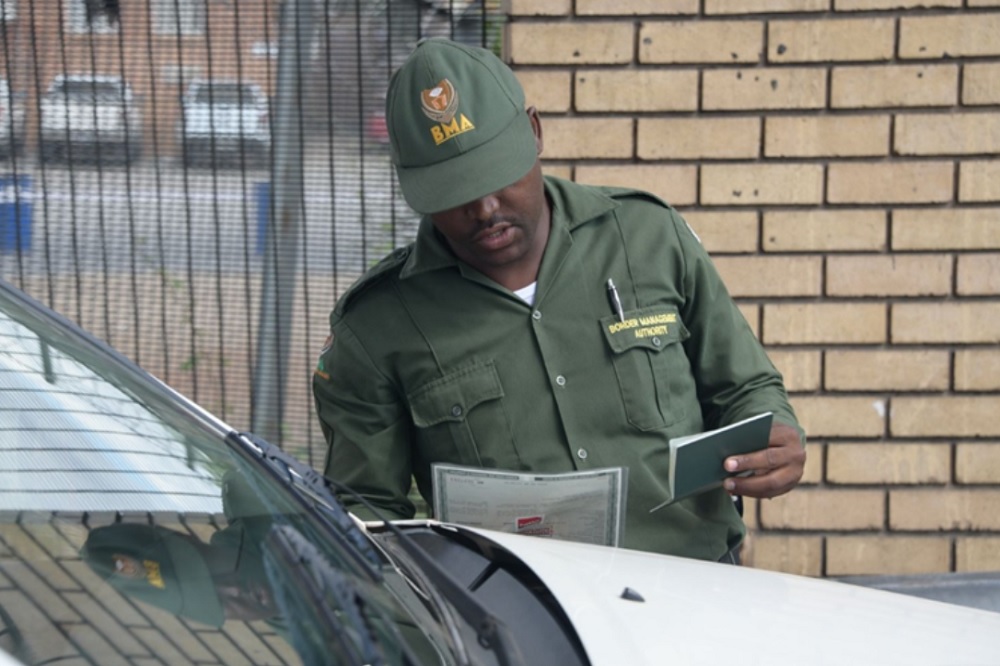By Buhle Sibanyoni
When parents drop their children off at school each morning and watch them walk through the grounds of what they assume is a ‘safe haven’, they wave goodbye, entrusting teachers to educate and protect their children. But what happens when that trust is lost? The dream of a ‘safe haven’ is shattered.
Yet, for parents like Thato Moteti, whose six-year-old child has just started Grade 1 in Gauteng, her main worry is learner bullying. But then again, the troubling reports about teacher misconduct have left her doubting whether these background checks are enough to ensure her child’s wellbeing. “Trusting someone else with your child is tough, so reports like these have heightened my anxiety and worry about my child’s safety.”
However, Moteti’s discomfort is entirely understandable. In recent years, a concerning surge in teacher misconduct cases have come forward, exposing gaps within the structure intended to safeguard learners from probable harm. Reports of these frustrations and opinions of those striving for reform, highlight a need for an upgraded teacher vetting process.
Amid the most despicable cases in recent years was that of Collen Rex, a former water polo coach at the prestigious Park Town Boys’ High. In a trial that left many taken aback, Rex was guilty of 144 charges of sexual assault and 12 charges of common assault. The full scope of his crimes was disclosed when surveillance footage from the school’s hostel in 2016 revealed his behavior. This incident ignited a sense of betrayal, raising the question: How did an individual with such predatory tendencies slip through the cracks of the vetting procedure?
Vetting of teachers
In South Africa, vetting teachers is a vital procedure aimed to ensure learners’ safety. This procedure involves numerous checks to verify the appropriateness of individuals working with children and mentally disabled persons. The process uses two registers in the vetting procedure.
The first is the National Register for Sex Offenders (NRSO). The register contains details of persons convicted of sexual offences against children. Employers are required to consult the NRSO to certify that potential employees are not listed, thereby preventing those with a history of sexual offences from working with vulnerable groups.
Similar to the NRSO, the National Child Protection Register (NCPR) also records individuals viewed unfavorable to work with children due to past misconduct or convictions. Consulting this register is an important step in the vetting process to protect learners from potential harm.
Chief Executive Officer (CEO) of the South African Council of Educators (SACE) Ella Mokgalane, who oversees the body responsible for teacher registration and vetting, recognizes that cases like Rex’s show a vital need for enhanced vetting, insisting that the council is committed to thorough vetting, including ensuring teachers are not listed on the National Register of Sex Offenders (NRSO).
“We cannot allow a situation where, through error or neglect, we end up with pedophiles in our classrooms,” says Mokgalane.
Sexual offenders
The NRSO intends to protect children and mentally disabled persons from known sexual offenders.
Moreover, Mokgalane points out the insufficiency of the NRSO as a major systematic flaw within the current vetting structure. Mokgalane is a steadfast advocate for the publication of the NRSO, saying that its publication will mark a transformative move in fast-tracking and reinforcing the vetting procedure to protect learners in academic spaces.
Mokgalane said this right ahead of Minister of Justice and Constitutional Development Mmamoloko Kubayi’s announcement stating that the government will make a list of convicted sexual offenders and gender-based violence perpetrators public by the end of February. Kubayi says the decision to make the register public is a significant step by the South African government in its fight against GBV and femicide.
Until now, the abuse imposed on learners has gone beyond sexual violence. Cases of racism have rocked schools, implicating those in authority. At Pretoria High School for Girls, investigations found the principal and human resources staff guilty of misconduct after revealing a whites-only WhatsApp group filled with racist remarks about black learners. Even though officials cleared students involved of misconduct, the case underlined the ongoing concerns that hound schools around the country.
Targets
Even more upsetting are cases involving educators who target learners. In 2023, two educators from Bonkolo Senior Secondary School in Dutywa, Eastern Cape, were precautionarily suspended after being accused of impregnating a pupil. The claims produced rage amongst many, again leaving the masses wondering how such predators managed to slip through the cracks.
For Mokgalane, one of the prevalent challenges in putting these cases to trial is the reluctance of parents to come forward, saying that, “Even when the council has a compelling case, such as in instances of statutory rape involving a teacher and a minor, parents are sometimes bribed to remain silent,” she explains. Mokgalane further states that sometimes parents claim their child is suffering ‘secondary trauma’ and refuse to let them testify, which makes it difficult to hold these preying educators accountable.
It is a saddening truth that justice is often dependent on the courage of victims and their families to step up and tell their stories. Without testimony from victims, many predators stay free to carry on their abuse in different schools, bringing up the burning necessity for a system that does not rely on victim collaboration.
Similarly, Moteti says it is crucial to create a safe space where learners feel comfortable reporting such issues and to foster transparent communication between teachers, students, and parents. “The authorities also need to ensure that perpetrators face consequences strong enough to deter future.”
In reaction to rising cases of teacher misconduct, SACE has responded. Last year, SACE reported the indefinite removal of 22 educators from the teaching register. However, is this truly sufficient?
Legal experts highlight the significance of careful vetting before an educator is set in a classroom. TPN Bureau Legal Counsel, Ashleigh Laurent says, “Many schools are unaware that they have to perform vetting against the National Register for Sex Offenders (NRSO).” With that said, what happens if schools neglect this process?
PODCAST:
Advocating for change
Laurent is not the only one advocating for change. Non-Governmental Organisations (NGOs) such as TEARS Foundation, a group committed to aiding and supporting survivors of gender based-violence, rape, and sexual abuse has called on government to enforce existing laws. “Our problem is not legislation; our problem is the failure to implement it,” says TEARS’ General Manager, Celeste Louw.
Louw further questions whether schools are indeed thoroughly vetting their teachers, expressing concerns considering the significant spike in sexual abuse reports. Louw remains doubtful about the effectiveness of the vetting process.
Even though Provincial Education Departments (PEDs) and SACE hold key obligations in ensuring learner safety, Louw believes that parents share equal responsibility for ensuring their children’s safety at school. She urges parents to monitor their children’s social media activity, warning that teachers who are predators are likely to contact students directly as part of a ‘grooming process.’ “Teachers who message students on WhatsApp are a red flag.” She advises parents to be actively involved in their children’s education and report any instances of abuse or violation to schools.
Nonetheless, the Department of Education maintains that amendments are on the way. Deputy Director for Human Resources Planning in the Department of Education, Tsekere Maponya, owns up to the nations’ mounting concerns and pledges that “The department is committed to enhancing teacher vetting systems,” and yet he admits that much work remains to be done.
VIDEO: DBE committed to enhancing teacher vetting systems
In its 2023/2024 annual report, SACE revealed that a total of 110 teachers had been accused of sexual misconduct, reinforcing the call for more rigorous vetting practices.
Legal authorities, parents, and NGOs such as TEARS constantly stress the need to make safety a matter of urgency in South African schools. Yet, the pressing questions remain: how will government act promptly to prevent the next tragedy?
More importantly, considering the limited time and resources available to fast-track the vetting process as cited by Maponya, another hounding question remains: how many other teachers with sexual convictions are still in classrooms today? There are no clear motives as to how the education department is ensuring the ongoing monitoring of teachers.
INFORGRAPHIC: Reported Assault misconduct in Schools











